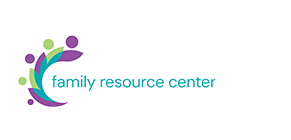FRC Diaper Drive Addressing Wide-Spread Need for Local Families
During the October Diaper Drive. donations of diapers (especially sizes 5-7), pull-ups (especially sizes 4T/5T and 5T/6T), and fragrance-free baby wipes can be made at both Family Service Rochester locations in Rochester: 4600 18th Avenue, NW or 1625 Highway 14 East.
Diapering has become one of the most costly parts of early parenthood for many families. As the cost of living continues to increase, parents have found that they can’t afford this basic need for keeping their babies healthy, clean, fand comfortable.
The Diaper Bank of Minnesota reports that "In Minnesota, 1 in 3 families struggle to ensure their children have enough diapers. That means that more than 125,000 Minnesota children ages 0-3 experience diaper need." Nation-wide that number approaches 1 in 2. Families who struggle to provide diapers often cut back on other essentials. 25% of caregivers have missed childcare or work due to a lack of diapers.
A baby’s health and comfort depend on the quality of their diapers. But unlike food or formula, they are not paid for by public assistance programs such as SNAP or WIC. For families on the edge of poverty that can mean reusing diapers or making do with fewer for longer — and even turning to dangerous alternatives, all of which lead to rashes and infections and condemn babies to needless misery.
Since 2020, the price of diapers has shot up more than 20 percent, driven by increases in materials costs as well as for transportation and packaging. Infants can require 8 to 12 diapers a day, or about 3,000 in the first year — at a cost of $900 or more. That’s a massive financial hit for families who have two or more young children, or small incomes.
The impact of a lack of diapers goes beyond health. Child care centers often request that parents bring their own baby’s diapers — and sometimes parents may miss work or school. And this, in turn, triggers a pernicious cycle: Parents who can’t afford diapers can’t work — and they can’t afford diapers because they can’t work.
Across the country, diaper banks and mutual aid groups have stepped in to meet those needs and they give away millions of diapers each year. But demand continues to grow. These community efforts give a sense both of how urgent the need is — and of how policy might step in to help
Since opening in March, the Family Resource Center Diaper Club has been working to meet this major community need in the community providing more that 36,000 diapers to more than seventy families each week.
Every child deserves a healthy start, and every parent deserves the peace of mind that comes with being able to meet their child’s most basic needs. Access to affordable diapers isn’t only about hygiene — it’s also about dignity, equity and giving every child the chance to grow up safe and nurtured.



